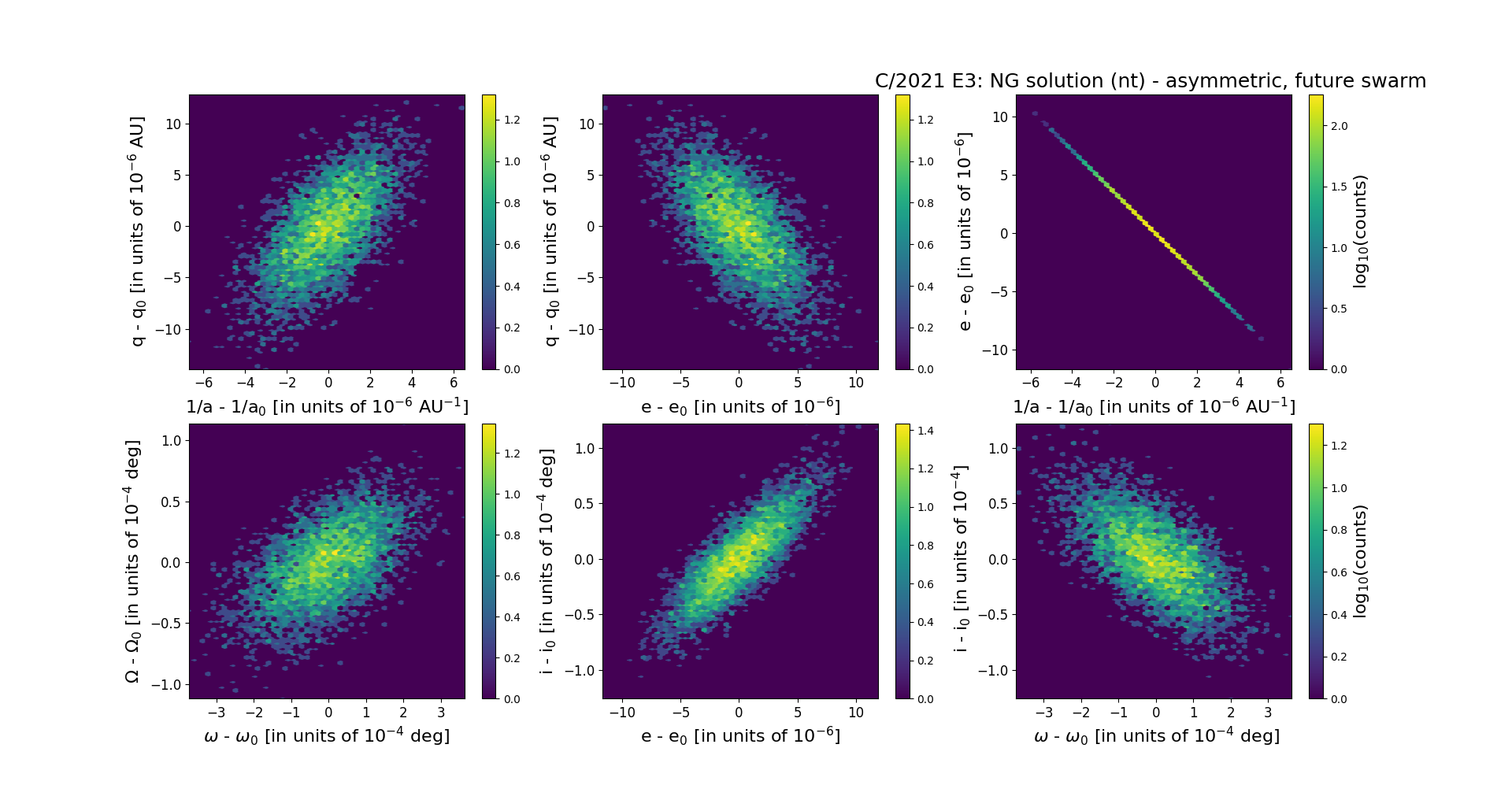C/2021 E3 ZTF
more info
Comet C/2021 E3 was discovered on 9 March 2021 by the Palomar Mountain--ZTF, that is three months before its perihelion passage.
Comet had its closest approach to the Earth on 31 May 2022 (1.215 au), eleven days before its perihelion passage.
This comet shows visible trends in the O-C distribution for a GR orbit; see [O-C] diagram for solution 'a5'. The preferred NG solution given here ('nt') is based on data span over 2.85 yr in a range of heliocentric distances: 5.34 au – 1.777 au (perihelion) – 6.35 au.
This Oort spike comet suffers moderate planetary perturbations during its passage through the planetary system that lead to a more tight future orbit (semimajor axis of about 1,700-2,000 au).
Comet had its closest approach to the Earth on 31 May 2022 (1.215 au), eleven days before its perihelion passage.
This comet shows visible trends in the O-C distribution for a GR orbit; see [O-C] diagram for solution 'a5'. The preferred NG solution given here ('nt') is based on data span over 2.85 yr in a range of heliocentric distances: 5.34 au – 1.777 au (perihelion) – 6.35 au.
This Oort spike comet suffers moderate planetary perturbations during its passage through the planetary system that lead to a more tight future orbit (semimajor axis of about 1,700-2,000 au).
| solution description | ||
|---|---|---|
| number of observations | 1450 | |
| data interval | 2021 03 09 – 2024 01 13 | |
| data type | perihelion within the observation arc (FULL) | |
| data arc selection | entire data set (STD) | |
| range of heliocentric distances | 5.34 au – 1.78 au (perihelion) – 6.35 au | |
| type of model of motion | NT - non-gravitational orbits for asymmetric, standard g(r) | |
| data weighting | YES | |
| number of residuals | 2848 | |
| RMS [arcseconds] | 0.25 | |
| orbit quality class | 1a+ | |
| orbital elements (barycentric ecliptic J2000) | ||
|---|---|---|
| Epoch | 2328 01 18 | |
| perihelion date | 2022 06 11.46260278 | ± 0.00052150 |
| perihelion distance [au] | 1.77751501 | ± 0.00000390 |
| eccentricity | 0.99908548 | ± 0.00000290 |
| argument of perihelion [°] | 228.766207 | ± 0.000104 |
| ascending node [°] | 104.517143 | ± 0.000028 |
| inclination [°] | 112.70248 | ± 0.000032 |
| reciprocal semi-major axis [10-6 au-1] | 514.50 | ± 1.63 |
| file containing 5001 VCs swarm |
|---|
| 2021e3nt.bpl |

